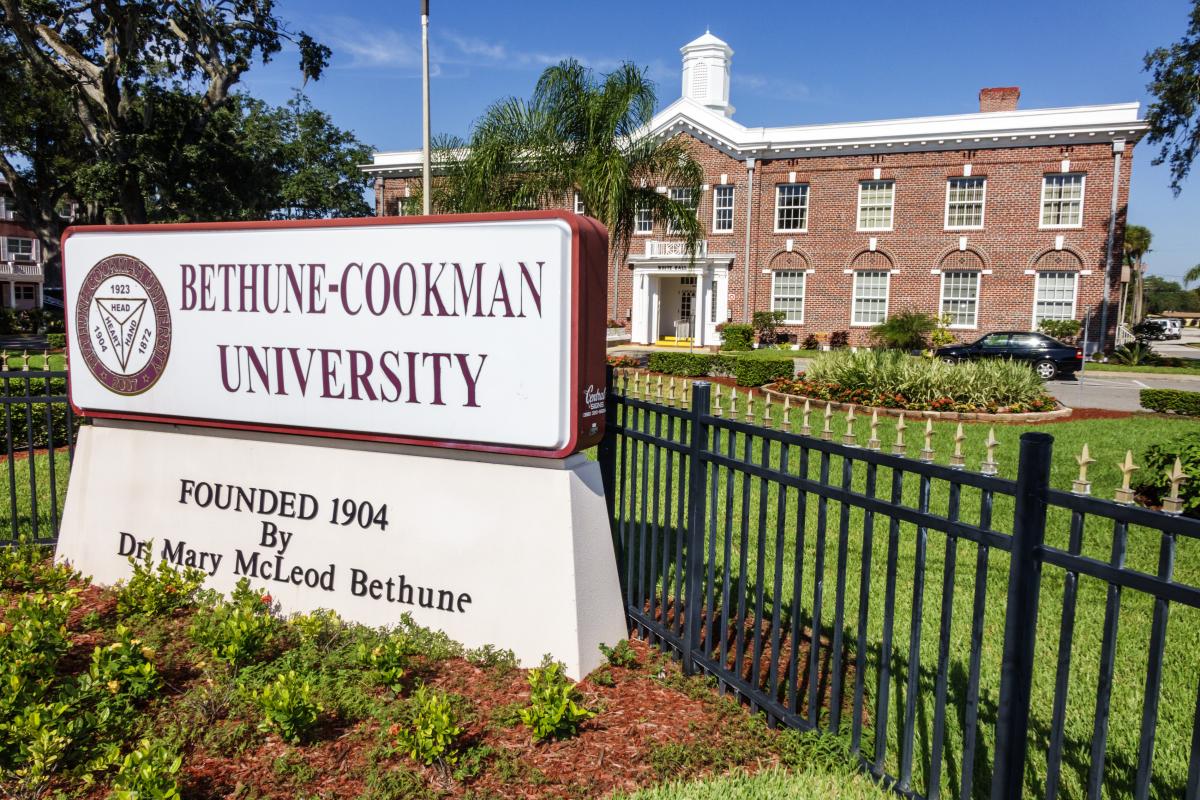
The finances for Bethune-Cookman University are on a new path now that the historically Black university has received assistance from the Department of Education to resolve a controversial and expensive dorm deal made by previous leadership.
Leadership for Bethune-Cookman signed an agreement Tuesday to receive a $108 million loan from the HBCU Capital Financing Program, backed by the Department of Education and Rice Capital. The funding allows the university to refinance a loan agreement made for an $85 million dorm that opened in 2016, which, due to the aggressive terms of the agreement, would’ve ultimately cost Bethune-Cookman $306 million over 40 years.
In addition to addressing the dorm’s financing, the loan also provides funding for the university to pay off bonds and conduct deferred maintenance -- allowing it not just to get by but to thrive, said Belvin Perry Jr., chairman of Bethune-Cookman’s Board of Trustees, in a release.
“We are just very thrilled that we have closed the chapter on a very dark part of the history of this university,” Perry told Inside Higher Ed. “It takes away distractions that have been around for a number of years.”
Though the dorm's construction costs were initially estimated to be $72.1 million, they ultimately grew to $85 million. Under a lease-and-sublease-back development agreement, monthly payments for the dorm would have risen by 1.5 percent each year, reaching a high of $840,000 per month and totaling more than $306 million by the end of the agreement. The university filed a lawsuit in 2018 against the developer and several former high-ranking officials, including former Bethune-Cookman president Edison O. Jackson -- who retired as president in 2017, shortly after the details of the deal were revealed -- that alleged "illicit and fraudulent" conduct related to construction of the dorm. The developer later countersued to receive the payments it was owed.
The HBCU Capital Financing Program was established in the early 1990s to provide historically Black colleges and universities access to low-cost capital for campus infrastructure improvements, given that HBCUs often don’t have the resources to access traditional forms of capital financing. Any HBCU can apply for the program, but Bethune-Cookman had to demonstrate stability with respect to finances and overall governance in order to be approved, according to a spokesperson for the university's board.
The university has been plagued with financial and governance problems over the last five years, which led to it being put on probation by the Southern Association of Colleges and Schools Commission on Colleges in 2018. Bethune-Cookman now has a new board, has improved its finances and has been off probation for close to a year and a half.
“We finished two straight years in the black,” Perry said. “We have a very excellent Board of Trustees. They thought it was a good investment like we did, and the loan was approved.”
Moving forward, the university plans to start a new strategic plan and reshape its academic enterprise, with a particular emphasis on STEM education, applied health, nursing and teacher education.
“It takes time to make that transformation, so that's where we're headed,” Perry said. “We want to make sure our students are well prepared for the world they have to live in.”
from Inside Higher Ed | News https://ift.tt/3duiCVC


No comments:
Post a Comment